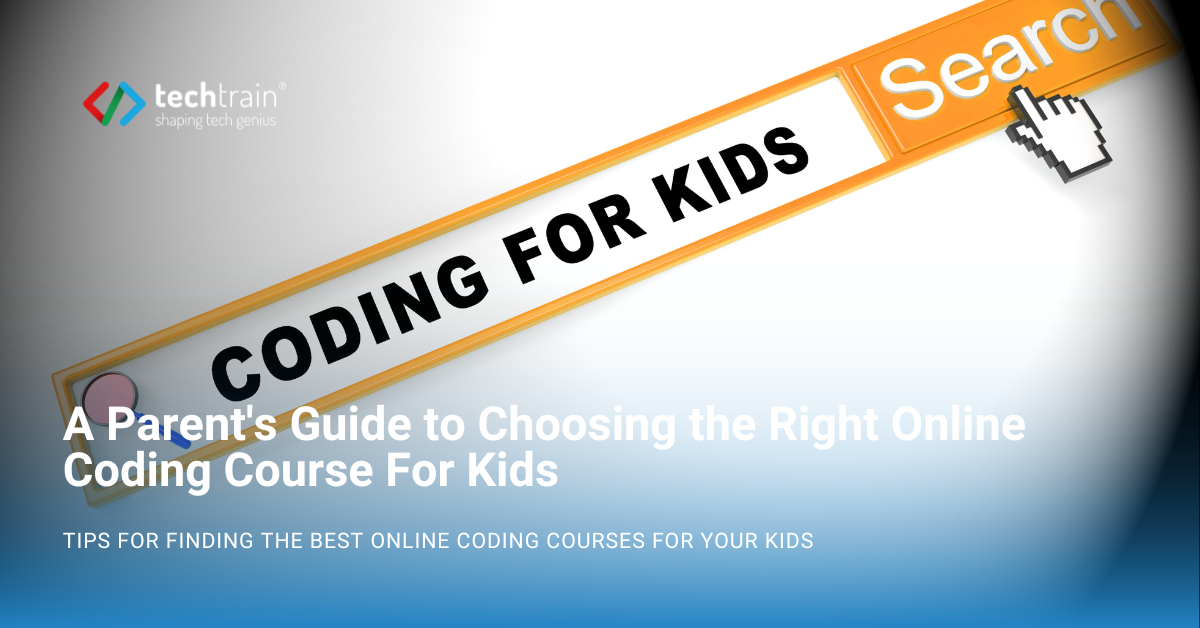We all want our kids to succeed. We cheer them on as they ace their tests, master multiplication tables, and pen eloquent essays. But what about the skills that aren't graded? The ones that truly pave the way for a fulfilling and independent life in our increasingly digital world? While schools provide a crucial foundation, there's a set of vital life skills for kids that often take a backseat to academics.
As parents and caregivers, it's our responsibility to bridge this gap. By consciously nurturing these abilities, we empower our children to navigate the complexities of the real world – both online and offline – with confidence and resilience.
Let's dive into 10 crucial life skills your child needs that might not be on their school curriculum with TechTrain!
Financial Literacy
Beyond the basics of addition and subtraction, understanding how money truly works is a crucial life skill that can set our children up for future security and independence. This includes the fundamentals of budgeting, the power of saving for goals, a basic understanding of credit and debt (as they get older), and the ability to make informed financial decisions. Often, school curriculums lean towards theoretical economics, which doesn't always equip kids with practical money smarts.
How you can help: Involve your child in family budgeting discussions. When they get an allowance or gift money, talk about the joy of saving for something they really want and the difference between needs and those tempting "wants." Even opening a simple savings account and tracking its growth can be a powerful, tangible lesson.

Emotional Intelligence
Imagine a world where our children not only ace their exams but also understand their own feelings and can truly connect with others. Recognizing, understanding, and managing their emotions, as well as empathizing with the feelings of those around them, is the bedrock of healthy relationships and inner peace. While social-emotional learning is gaining ground, it’s not always woven consistently into the fabric of the school day.
How you can help: Open the door for conversations about feelings – yours and theirs. Help your child name their emotions and explore healthy ways to cope with them. Model empathy in your own interactions and talk about seeing things from different points of view in everyday situations.
Effective Communication
Communication is so much more than just grammar and vocabulary; it's about truly connecting with others. This involves active listening, clearly expressing thoughts and needs, and understanding the subtle language of non-verbal cues. While schools often focus on the written word, the art of genuine interpersonal communication can sometimes be left to chance.
How you can help: Encourage your child to articulate their thoughts and needs respectfully. When they're talking, practice truly listening without interrupting, and then discuss how body language and tone can impact a message.
Time Management and Organization
The ability to prioritize tasks, manage their time effectively, and keep their belongings and thoughts organized is vital not only for academic success but also for future productivity and reduced stress. While some children naturally gravitate towards order, many need explicit guidance in these areas.
How you can help: Work together to create visual schedules and to-do lists. Break down larger tasks into smaller, more manageable steps and emphasize the importance of setting realistic deadlines.
Resilience and Adaptability
Life inevitably brings challenges, and the ability to bounce back from setbacks, learn valuable lessons from mistakes, and adapt gracefully to new situations is a cornerstone of navigating an ever-changing world. Sometimes, the focus in schools can be heavily on achievement, which inadvertently might overshadow the importance of learning and growing through failure.
How you can help: Cultivate a growth mindset by praising effort and learning rather than just innate talent. Help your child see mistakes as opportunities for growth and encourage them to step outside their comfort zone and try new things.
Collaboration and Teamwork
The ability to work effectively with others, understand different roles within a team, and contribute meaningfully towards a common goal are essential skills for success in both academic and professional settings. While group projects are common, the nuances of effective collaboration – communication, compromise, and shared responsibility – aren't always explicitly taught.
How you can help: Encourage participation in team sports, clubs, or community projects. After group activities, discuss what worked well and what could have been improved in terms of teamwork.

Self-Advocacy
Knowing how to identify their own needs, express them assertively and respectfully, and confidently seek help when necessary is a vital skill for children to navigate various aspects of their lives. Schools might not always provide explicit opportunities for students to practice using their voice effectively.
How you can help: Encourage your child to ask questions in class and express their opinions respectfully at home. Role-play scenarios where they might need to advocate for themselves, such as asking for clarification or expressing a concern.
Basic Cooking and Nutrition
Understanding basic cooking skills and the fundamentals of healthy eating are essential for lifelong well-being. Often, comprehensive education in this area takes a backseat to other subjects.
How you can help: Involve your child in meal planning and preparation from a young age. Teach them simple cooking skills and discuss the importance of balanced nutrition and making healthy food choices.
Digital Literacy and Safety
In today's digital age, knowing how to use technology responsibly, critically evaluate online information, and stay safe in the digital realm is non-negotiable. While schools are increasingly addressing these topics, the online landscape evolves rapidly.
How you can help: Have ongoing conversations about online safety, privacy, and responsible digital citizenship. Teach them how to evaluate the credibility of online sources and be aware of potential online risks and scams.
Mindfulness and Self-Care
Developing practices that promote mental and emotional well-being, such as mindfulness and self-care techniques, is crucial for managing stress and maintaining a healthy balance in life. These skills, while incredibly important, are often overlooked in the academic rush.
How you can help: Introduce simple mindfulness exercises, like focusing on their breath. Encourage them to identify activities that help them relax and recharge, and emphasize the importance of taking care of their mental and emotional health.
Investing in Your Child's Future Beyond the Classroom
While academic knowledge is undoubtedly important, these 10 life skills for kids are the building blocks for a successful, fulfilling, and independent adulthood. By consciously integrating these lessons into their upbringing, you're equipping them with the tools they need to thrive in a world that extends far beyond the classroom walls.
.avif)

.avif)


.avif)












.avif)
.avif)

.avif)
.avif)
.avif)
.avif)



.png)
